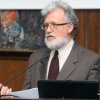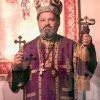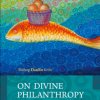Сваки народ би требало да зна не само шта никако не би смео да учини него и шта би све морао да учини. Кад је реч о великом, генијалном научнику Николи Тесли и о обавезама нас Срба према њему, онда би требало знати бар две ствари. Прво, да кључну обавезу бриге о имену и делу Николе Тесле не смемо никако препустити некоме другоме него да то мора бити у превасходној надлежности српског народа, његове науке и културе. Друго, Теслина генијалност, његови изуми и стваралачке идеје несумњиво припадају целом свету, свим људима и целокупном универзуму, али бисмо ми, припадници српског народа морали што чвршће и дубље да вежемо сопствену науку и културу за овог генијалног ствараоца како би се тиме непрестано подстицао интелектуални, стваралачки развој свакога од нас.
.Неопходно је, дакле, на све начине утврдити оно што наш народ веже за Теслу, за његово научно и духовно наслеђе. То истовремено значи да бисмо морали знати да је право место за починак праха великог Николе Тесле управо Београд, и то Врачар, на којем се уздиже Храм Светог Саве. Зато на том месту и треба, уз споменике Карађорђу и Светом Сави, да се нађе и споменик Николи Тесли. Врачарски плато би, осим тога, могао постати место на којем би се формирао најстрожи Пантеон оних који су за духовно-историјску судбину српског народа најзаслужнији.
Ваља изразити најдубљу захвалност Српској православној цркви на, пре више година исказаној иницијативи да Никола Тесла нађе свој покој баш уз Храм Светог Саве. Исто тако треба захвалити Влади Републике Србије и Граду Београду што су се, најзад, договорили око онога што бисмо, мање због Тесле а више због нас самих, морали да учинимо. Овим договором као да стичемо додатне разлоге за оптимизам у погледу будућности српског народа. Та будућност у великој мери почива на стваралачком уму Николе Тесле, па ћемо са учвршћењем веза са тим умом свакако имати више права и на саму будућност.
Проф. др Драган Станић,
Председник Матице српске
Извор: Матица српска





